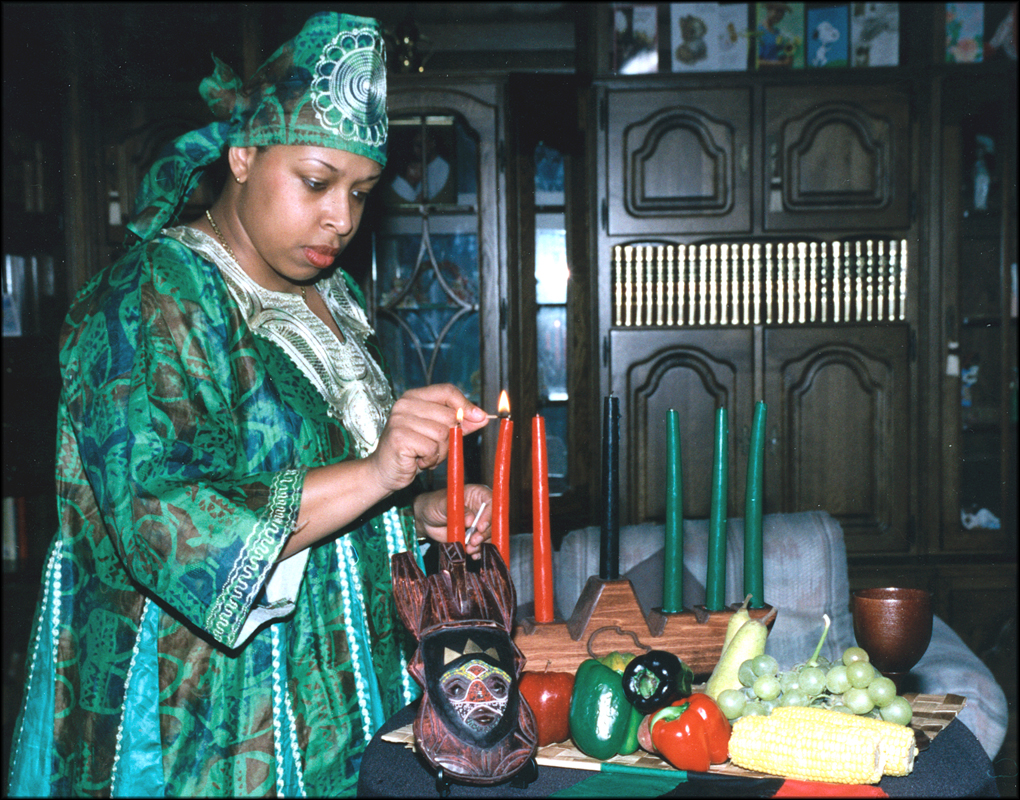Olayemi Odesanya
New York Amsterdam News

This year will mark the 50th annual celebration of Kwanzaa. Kwanzaa was developed by Dr. Maulana Karenga, who was a professor of Black studies at California State University, Long Beach in 1966. He wanted a national holiday African-Americans could call their own. So he went to different countries in Africa to help him research, pay tribute and emulate already established holidays. The notion behind Kwanzaa is for African-Americans to celebrate their ancestors, history and cultural values. And instead of having Kwanzaa being a day, he made into a weeklong celebration. Kwanzaa officially starts December 26 and ends January 1.
Each day represents a different principle.
There are seven days of Kwanzaa. The first day is Umoja. This day represents the unity our community and family need to uphold each other. The second day is Kujichagulia. Kujichagulia means self-determination. The decisions that we make should be the best interest for our families and community. The third day is Ujima. This day we must work with one another and fulfill our responsibilities. The fourth day is Ujamaa. Ujamaa represents the day that we must support one another. The fifth day is Nia. Nia represents the significance of knowing our personal purpose. The sixth day is Kuumba. This day represents creativity. And the last day is Imani. This day represents having faith within ourselves.
These principles are believed to be what has helped countries in Africa prosper for all of these centuries. This national holiday is very popular in Pan-African households worldwide. But this holiday can be celebrated in numerous ways. Some families believe that they should enjoy this holiday with family members and loved ones. Others go to their local community Kwanzaa events.
The 7 principles of KwanzaaThe celebration honors African heritage in African American culture and is observed from Dec. 26 to Jan. 1 Umoja (oo-MO-jah) Unity stresses the importance of togetherness for the family and the community, which is reflected in the African saying, “I am We,” or “I am because We are.” Kujichagulia (koo-gee-cha-goo-LEE-yah) Self-Determination requires that we define our common interests and make decisions that are in the best interest of our family and community. Ujima (oo-GEE-mah) Collective Work and Responsibility reminds us of our obligation to the past, present and future, and that we have a role to play in the community, society, and world. Ujamaa (oo-JAH-mah) Cooperative economics emphasizes our collective economic strength and encourages us to meet common needs through mutual support. Nia (NEE-yah) Purpose encourages us to look within ourselves and to set personal goals that are beneficial to the community. Kuumba (koo-OOM-bah) Creativity makes use of our creative energies to build and maintain a strong and vibrant community. Imani (ee-MAH-nee) Faith focuses on honoring the best of our traditions, draws upon the best in ourselves, and helps us strive for a higher level of life for humankind, by affirming our self-worth and confidence in our ability to succeed and triumph in righteous struggle. |




